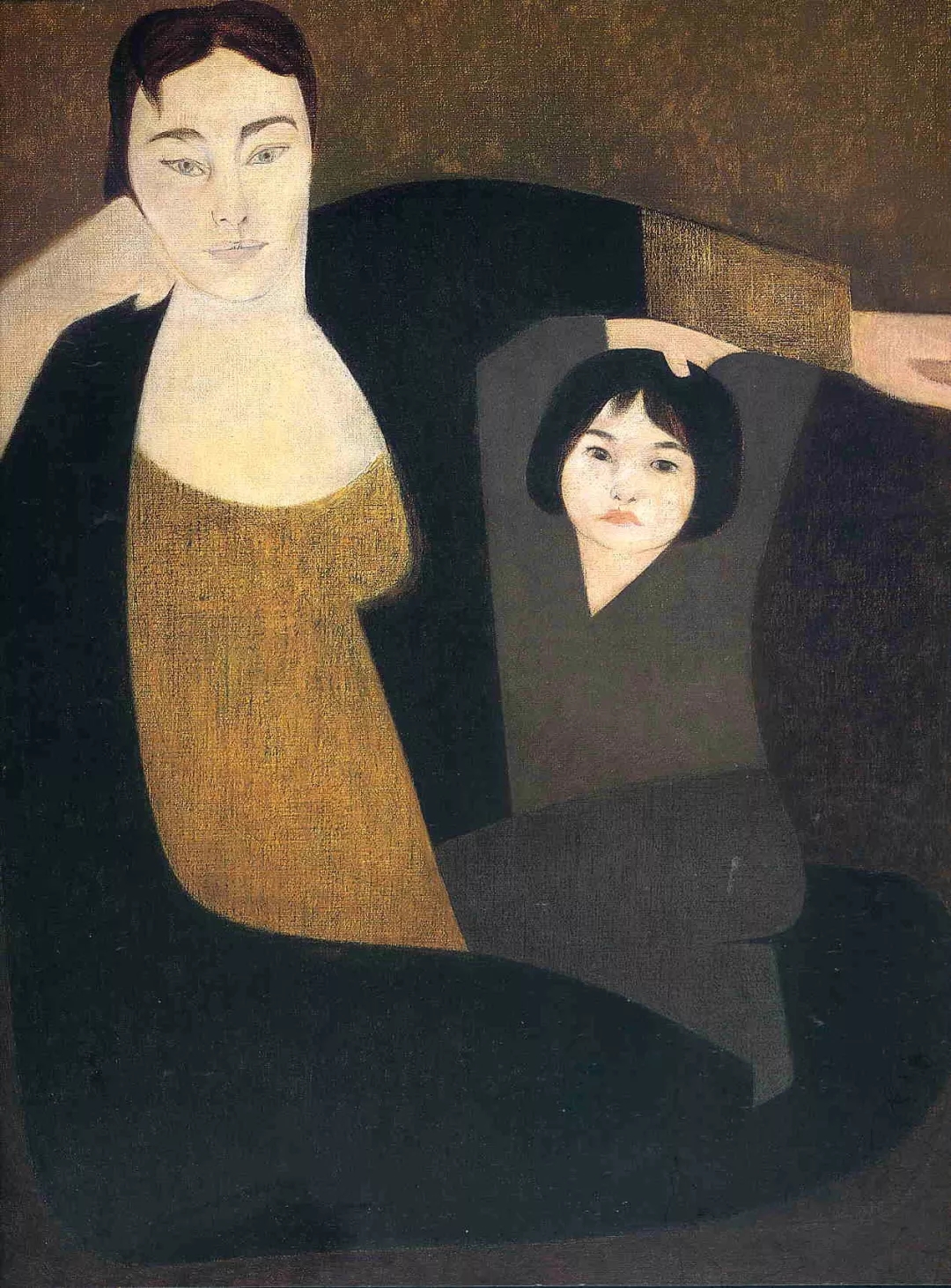
命中注定
可能你可以对一个孩子说
世界总比你意料中更美好,
然后你让他们独自走向未来,
那远方黑黢黢的树林。
她突然在深冬死去,死在了几年前她丈夫
离世的同一张床上;床上的另一边还留着他压出的坑。而她的
第二任丈夫留在日本和他的第一个家庭生活在一起。
她曾经说,她的三个女儿在独立生活后会干些什么
她无法想象。
我的妈妈是第二个女儿,是一座无声之声的花园。她们四个人
生活在索尔的一座破房子里。
我外婆留下一张发黄的照片,她的脸
转向镜头外,就像野兔感觉到了猎犬;
据说她总是独自吃饭,一只内向的生物。她向这个
她无法施力的世界承诺了些什么?
一个孩子突然感觉到经验在她的体内宣布其边界:
在她母亲的葬礼上她哭得太猛以至于在好几天的时间里
她的手都失去了感觉,
这说明她抓挠自己是多么地狠,这动作毫无意义。
你一直相信这就是你的主题:命运,把自己浸没在酸液中的
负数的欢愉。
你以为它可以把你从简单幼稚中解救出来,妈妈在门廊里
教训道,但艺术并不是撒手锏。
我不是一个傻孩子。我甚至也不再是个孩子,带着她的
犹疑,然后是可怕的确信:丧失并不只是毫无意义,它还是悲剧。
当她孤独时,妈妈会做饭;当她快乐时,她知道如何
隐藏。
作者 / [美国] 桑德拉·林
翻译 / 光诸
Certainty
Perhaps you can tell children that the world is always a more beautiful place than you can suppose,
and then you release them into their future, the black row of trees in the distance.
She died suddenly in midwinter, in the same bed in which her husband died years earlier; it still sagged on his side. Her second husband remained in Japan with his first family.
She used to say, what my three girls do when they are on their own is unimaginable to me.
My mother is the middle daughter, a garden of inaudible tunes. The four of them lived in a mean house in Seoul.
One yellowing picture of my grandmother remains, and her face turns away from the camera, as the rabbit senses the hound;
she was said to be a solitary eater, an inner thing. What did she promise the world that she wasn’t able to make good on?
A child who abruptly feels the frontiers of experience assert themselves in her: at the funeral my mother cries so hard she can’t feel her hands for days,
it explains how she scratches herself raw, meaningless.
You have always believed these are your themes: fate, the negative pleasures of dipping oneself in acid.
You think it will rescue you from your simplicity, remarks my mother from the doorway, but art is never the ace in the hole.
I am not a stupid child. I am not even a child any longer, with her hesitant, then terrible certainty, that loss is tragic, not only pointless.
When she is lonely, my mother cooks; and when she is happy, she knows to hide it.
Sandra Lim
今天这首诗讲述的“故事情节”比较复杂,在这里按照我自己的理解给大家整理一下:
这首诗讲述了作者一家三代女人的命运。
第一代:作者的外婆。很内向,很无力。在丈夫死后带着三个女儿生活在韩国首尔的一座破房子里,不久后在深冬去世。
第二代:作者的母亲。目睹父母的去世,在母亲的葬礼上拼命抓挠自己以至于手臂失去知觉。孤独的时候会做饭,快乐的时候也不声张。
第三代:作者,一个生活在美国的艺术家,被母亲教训说“把命运和负数的欢愉作为主题”,而自己确信丧失不是毫无意义的,从中可以看出“悲剧”。
如果是在一般的写作课上,这首诗是可以被判“不及格”,因为它的代词往往让人困惑——那些“你”和“她”究竟指代着谁?这其实是作者刻意追求的效果。在这首诗中,代词指代的模糊性就像图像处理中的“涂抹”工具,把事物的边界模糊化了。这就造成了一种效果,似乎外婆走过的路,妈妈和作者也在走,他们共享某些非常私人化的感受。
作为和作者具有相同文化背景的东亚人,我们很多人可以对诗人描绘的情境感同身受。我们的父辈、祖辈贫穷、苦难,悲剧性的生活,一直影响着我们的生活。这种影响可以比拟成镜像,也可以是阴影,或者负片。这种感觉是无法摆脱的,甚至他们的人生会把我们的压垮。
此时,或许艺术是一种自我拯救的方式。命运,负数的欢愉,艺术的揭示未必能作为战胜人生痛苦的“撒手锏”,但它起码能使我们的建立某种确信。无论如何,怀抱确信的成年人,也要比独自走向黑森林的孩子更强大。
荐诗 / 光诸(微信号:ghostinthezoo)
2018/01/15
题图 / Will Barnet, Mother And Child
Published 2018/01/15
Last updated: 2018/01/15

近期评论